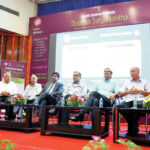- Cover Story
- Governance
- Globe Scan
- Corruption
- State Scan
- Talk Time
- Cover Story
- Governance
- Globe Scan
- Corruption
- State Scan
- Talk Time
Recent Posts
© Copyright 2007 - 2023 Gfiles India. All rights reserved powered by Creative Web INC.Home From the EditorFrom the EditorFrom the Editor
Anil TyagiSeptember 12, 20182 Mins read272 Views
 Anil Tyagi - Editor GfilesWritten by Anil Tyagi
Anil Tyagi - Editor GfilesWritten by Anil TyagiTHREE issues plague the Indian Police today: politicisation, lack of professionalism and alienation from large sections of the society. The current thinking on police reforms is that if the first two concerns are addressed, the third will automatically be dealt with.
Unfortunately, experiences from several mature and developed democracies prove that this is not necessarily so. De-politicisation and professionalism make the police efficient, but not moral. They make the force adept at crime-solving, but not problem-solving for the society. In fact, it is not rocket science to believe that even if the Indian Police gets rid of the political influences, and has access to modern technology and huge funds, it will continue to be as brutal as it is today, and continue to misuse and abuse its powers against the weaker sections.
In the 1950s, America believed that its police was among the best in the world. It was independent of politics, autonomous, and far ahead in terms of adoption of global best practices. The 1960s shattered this myth. During the decade, the crime rate per 100,000 people doubled; the increase in the rate of violent crimes, like robberies, was higher. More important, police action against African-Americans and students’ movements in the 1960s showed its dark and ugly sides. The Kerner Commission concluded that “police conduct included brutality, harassment, and abuse of power”. Research found that the American police followed racial discrimination in employment, arrests, and the use of deadly force.
Doesn’t this remind us of the state of Indian Police in the 21st century, with its regular violent and inhuman acts against Indian citizens during riots, protests, and even in everyday lives? Shockingly, what had been deemed good for the US Police in the decades preceding the 1960s turned out to be worse for it. De-politicisation left the force unprotected from criticism by the executive, media, and judiciary. Technology, like fast-moving vehicles for mobile patrolling and high-tech weapons, “eliminated routine contact” with the people, and “exacerbated police-community problems”. There was complete disconnect between the police and society.
Thus was born the idea and philosophy of community policing. This maintained that the role of the police wasn’t reactive and crime-control, but a proactive one that solves the crucial, critical, and inherent issues that trouble various communities. According to experts, this entailed three new responsibilities: continuous engagement and interaction with the people; ability to solve the daily problems of the community; and adaptation of the police organisation to fulfil these duties. Clearly, the police had to be community-oriented. It had to understand the needs of the society, and then act in a manner to resolve them amicably and peacefully. In the past five decades, the American Police inculcated these new dimensions to emerge as a new sensitised force.
India needs a similar approach. The current wave of reforms, as expressed by the Supreme Court and pushed through by the police itself, seems to be a case of protecting the force’s self interests. By focusing on de-politicisation and professionalism, they seem to be intent on how to make the police independent. It is a laudable objective, but it will not be enough. In fact, it may lead to worse problems in the near future. What we need is a police that serves the people and citizens in a fair and transparent manner. What is required is a new moral manifesto, a set of new values that will make the Indian Police work in the interests of the people. What we need today is a People’s Police, a force that is of the people, by the people, and more importantly, only for the people.
Anil Tyagi
editor@gfilesindia.comRecent Posts
Related Articles
From the EditorFrom the Editor
Written by Anil Tyagi COVID-19 has devastated us socially, mentally, physically, and economically....
ByAnil TyagiMay 5, 2020From the EditorFrom the Editor
Written by Anil Tyagi COVID-19 is a virus, a physical being, howsoever miniscule,...
ByAnil TyagiMarch 4, 2020From the EditorFrom the Editor
Written by Anil Tyagi This is another face of capitalism, albeit an ugly...
ByAnil TyagiFebruary 5, 2020From the EditorFrom the Editor
Written by Anil Tyagi WHAT is governance? In modern parlance, it implies a...
ByAnil TyagiJanuary 7, 2020 - Governance
- Governance


























































